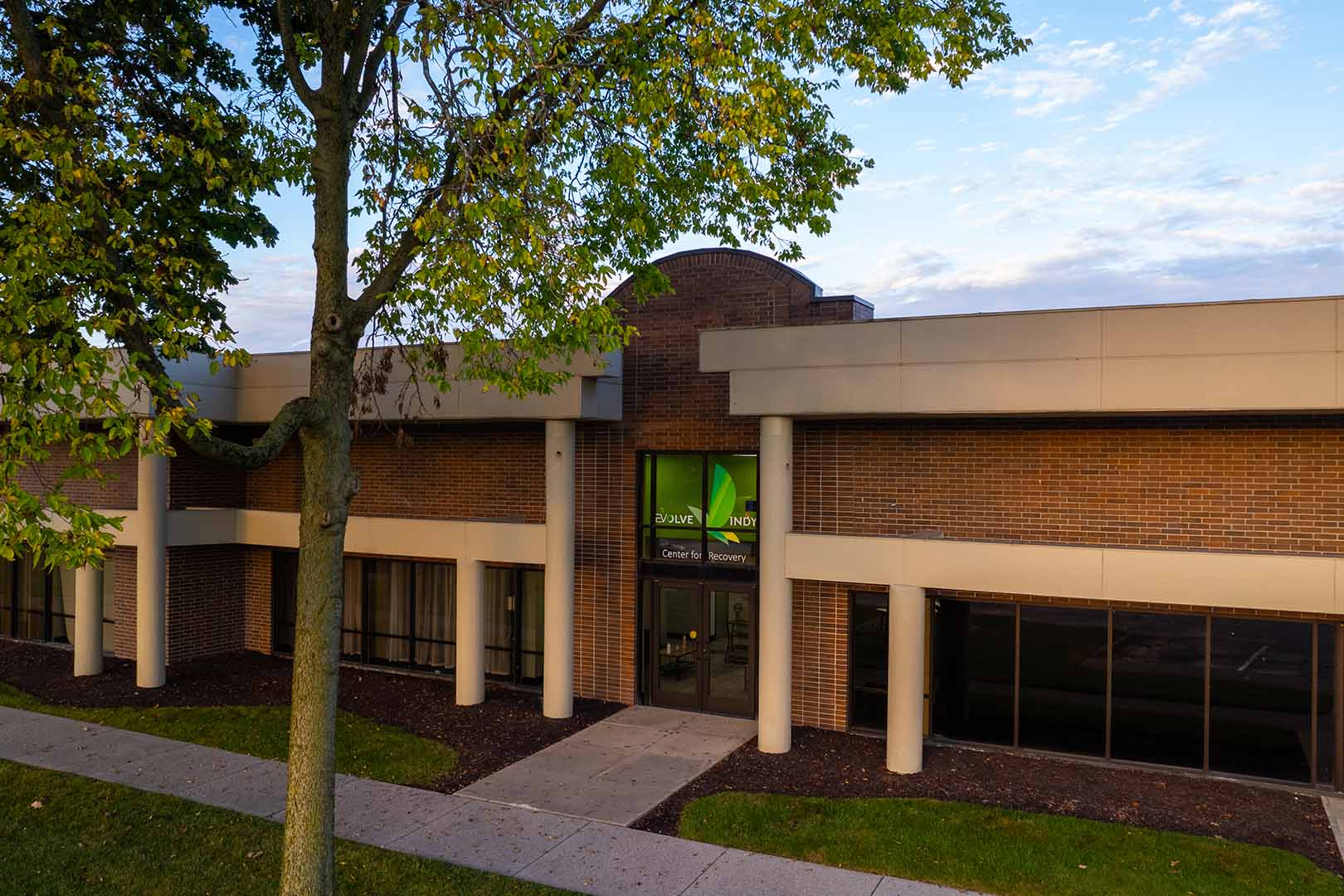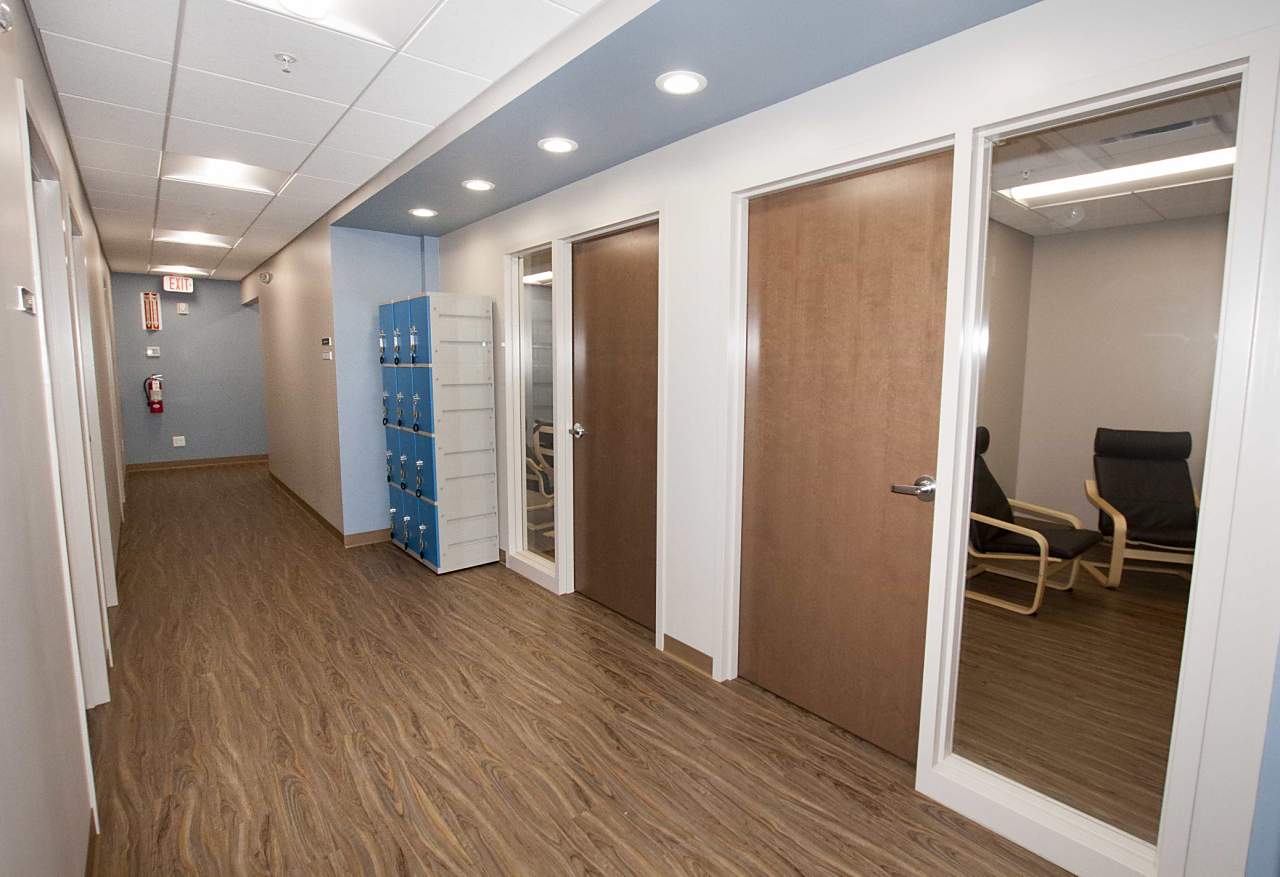Unraveling the Myths and Facts Bordering Addiction Treatment Options
You might believe addiction is simply an ethical falling short or that therapy only works after hitting rock base. The fact is a lot extra intricate. Addiction is a chronic disease that needs ongoing treatment, and therapy choices differ commonly. By understanding the realities and myths bordering these alternatives, you can much better navigate the path to healing. What you uncover might alter your point of view on seeking assistance and support.
Recognizing Addiction as a Chronic Condition
Recognizing addiction requires recognizing it as a persistent disease, just like diabetic issues or heart illness. You may consider addiction as a moral stopping working, however it is necessary to view it through a medical lens. Much like any persistent problem, dependency can entail modifications in brain chemistry and framework, resulting in uncontrollable behavior.When you understand dependency in this manner, it becomes clear that therapy isn't concerning self-control; it has to do with managing an intricate health and wellness issue. This understanding can help you locate the best therapy choices, whether that's therapy, drug, or support groups.Recognizing dependency as a chronic condition additionally encourages empathy, allowing you to sustain liked ones having problem with it. You'll see that recuperation is frequently a lasting process, needing recurring care and assistance. With this perspective, you can better value the difficulties encountered by those affected and contribute to an extra supportive atmosphere for recovery.
Typical Misconceptions About Addiction Therapy
Lots of people hold false impressions about addiction therapy that can hinder healing initiatives. One common misconception is that dependency is merely a lack of self-discipline. This idea disregards the complex nature of addiction as a persistent condition that influences brain chemistry. An additional myth suggests that treatment only functions if someone hits "rock bottom." In truth, numerous people can take advantage of very early treatment, making it important to seek help quicker as opposed to later on. Some additionally assume that rehabilitation is a one-size-fits-all remedy. Reliable therapy is individualized and thinks about different elements like private needs and situations. In addition, many think that as soon as treatment is full, recuperation is assured. Healing is a continuous process that needs continued assistance and approaches. By debunking these misconceptions, you can come close to addiction therapy with a more clear understanding, inevitably boosting your possibilities of successful recovery and a much healthier life.
The Value of Evidence-Based Methods

Kinds of Treatment Options Available
After identifying the significance of evidence-based approaches in dependency therapy, it's important to explore the numerous options available to you. One preferred choice is inpatient treatment, where you remain at a facility for intensive care and assistance. This choice provides an organized atmosphere, reducing distractions and focusing on recovery.Outpatient therapy, on the other hand, permits you to go to treatment sessions while living in the house, supplying flexibility for job or family members commitments. You may also think about medication-assisted therapy, which integrates medications with therapy to deal with material use problems effectively.Behavioral therapies, such as Cognitive Behavior Modification (CBT) and Dialectical Behavior Modification (DBT), aid you identify and alter adverse thought patterns. Support system, like Alcoholics Anonymous (AA) or Narcotics Anonymous (NA), offer community and shared experiences. Each alternative has its strengths, so it's critical to evaluate your demands and preferences to find the most effective suitable for your recovery journey.
The Function of Assistance Solutions in Healing
Assistance systems play an important function in your recuperation trip. Engaging with family, pals, and peer networks can offer the inspiration and liability you require to stay on track. When you surround on your own with an encouraging area, you're more likely to get over difficulties and attain long-term change.
Importance of Neighborhood Support
Neighborhood support plays a crucial role in addiction recuperation, as it fosters a sense of belonging and responsibility. When you surround yourself with others who understand your struggles, you'll discover support and motivation to remain on track. Engaging with support groups or community programs develops a secure area where you can find out and share experiences from each other. These connections assist minimize feelings of isolation, which frequently accompany addiction. By participating actively, you acquire insights and strategies that boost your coping abilities. Plus, being part of a community permits you to celebrate milestones, reinforcing your commitment to recovery. Inevitably, the collective strength of a supportive network can make all the difference in your trip toward a much healthier, sober life.
Family Members Participation in Healing
While many variables contribute to successful recovery, family members involvement often attracts attention as a necessary element in the recovery procedure. Your family members can offer a nurturing setting that fosters understanding and empathy. When they actively participate in your recovery trip, they can aid you remain inspired and answerable. Open communication permits you to share your ideas and feelings, assisting to rebuild trust and enhance bonds.Additionally, relative can discover addiction and healing, making them much better furnished to sustain you. Their motivation can assist you face difficulties and commemorate milestones along the road. Inevitably, having a strong family support group can considerably improve your chances of maintaining lasting soberness and achieving a healthier, better life.
Peer Assistance Networks
Family participation can significantly enhance your healing, however peer assistance networks additionally play a necessary role in your journey. Getting in touch with others who share comparable experiences can provide you with understanding, sociability, and encouragement. These networks create a safe area where you can honestly review your challenges and victories without fear of judgment.Engaging with peers in healing assists you recognize you're not alone, and it can inspire you to adhere to your objectives. Routine meetings and shared experiences foster liability, making it easier to browse bumpy rides. Whether via support groups or on-line discussion forums, these connections can strengthen your willpower and offer useful advice. Embrace these networks; they can be a lifeline in your recovery process.
Individualized Therapy Plans: Why One Size Doesn't Fit All
Addiction therapy isn't a one-size-fits-all solution; it requires a customized technique that considers your special conditions and demands. Everyone's trip via addiction is different, affected by elements like personal history, mental health, and support group. That's why an individualized therapy plan is crucial for your success.When you participate in a personalized plan, experts can identify specific triggers and challenges you face. This permits them to advise treatments and treatments that resonate with you, whether it's cognitive-behavioral therapy, medication-assisted therapy, or holistic approaches.Moreover, your choices and way of living play a substantial role in the therapy procedure. You're more probable to stay committed to a strategy that feels right for you. Don't work out for generic services; supporter for a treatment path tailored to your specific needs. Remember, the extra customized your strategy, the better your chances for lasting recuperation.
Recurring Recovery: The Journey Beyond Therapy
When treatment is over; it's simply the beginning of a long-lasting commitment, healing doesn't finish. Constructing a strong assistance system can make all the difference in avoiding and managing obstacles isolation. You'll require effective coping methods to deal with minutes of loneliness along the road.

Assistance Solutions Matter The Majority Of
While maneuvering the journey past treatment, having a solid assistance system can make all the difference in your ongoing recovery. Surrounding on your own with people that comprehend your battles and objectives creates a safeguard. Pals, family members, and support teams can provide motivation when you face obstacles. They supply liability, assisting you stay devoted to your recovery journey. Sharing experiences with others that've strolled a comparable path can infuse hope and durability. Bear in mind, it's alright to lean on them; you're not the only one. Seek connections that boost you, and be open about your feelings. Cultivating these partnerships fosters a feeling of belonging, which is important for keeping your progress and guiding via the ups and downs of recovery.
Lifelong Dedication to Recuperation
Accepting a long-lasting dedication to recovery implies identifying that the journey doesn't finish after therapy; it's a continual process needing commitment and self-awareness. You'll locate that keeping your recovery includes day-to-day choices and recurring individual development. It's essential to establish routines that support your well-being and strengthen the lessons discovered throughout therapy. Remaining gotten in touch with your support system, whether with treatment, assistance teams, or friendships, can offer responsibility and inspiration. Be aggressive in attending to triggers and obstacles as they arise, and don't wait to look for assistance when needed. Keep in mind, healing isn't nearly avoiding substances; it has to do with building a fulfilling life that lines up with your goals and worths. Welcome this journey, and commemorate your progression along the road.
Coping Techniques for Loneliness
Feeling lonely during ongoing healing Resources can be tough, specifically as you navigate the modifications in your life. To cope, attempt connecting to supportive friends and family. They can advise you that you're not the only one in this journey. Take into consideration joining support teams where you can link with others facing comparable struggles. Participating in tasks or hobbies you appreciate can additionally aid occupy your mind and foster links. Offering is one more excellent means to satisfy new people while repaying to your area. Lastly, do not ignore the power of self-care; exercising journaling, mindfulness, or reflection can assist you refine your feelings. Keep in mind, it's fine to look for expert assistance if isolation becomes overwhelming. You are entitled to support as you proceed your recovery journey
Often Asked Questions
Can Addiction Be Treated Without Expert Assistance?
Yes, dependency can be managed without expert aid, yet it's tough. You'll require strong support systems, self-control, you can try this out and efficient coping approaches. However, seeking specialist advice greatly enhances your chances for successful recuperation and long-term adjustment.
What Function Does Household Play in Treatment Success?

Are Different Treatments Reliable in Dealing With Addiction?
Alternative treatments can be efficient in treating addiction (New Origins Addiction Treatment Center). You may locate art, mindfulness, or yoga therapy useful, as they offer holistic techniques that enhance traditional methods, helping you manage tension and promote overall well-being
The Length Of Time Does Dependency Treatment Normally Last?
Dependency therapy normally lasts anywhere from a couple of weeks to a number of months, depending on your needs. It frequently includes therapy, detox, and support groups, all customized to assist you accomplish long lasting recovery and health.
What Occurs if Treatment Does Not Function?
If treatment does not function, you may really feel dissuaded, but it is very important to reassess your choices. You can explore various therapies, support teams, or perhaps a various strategy to discover what truly reverberates with you.
Verdict
To summarize, comprehending addiction as a persistent disease is crucial in dispelling myths regarding therapy. By acknowledging that effective recovery calls for evidence-based techniques and personalized treatment, you can take the initial steps towards recovery. Remember, it's fine to seek assistance and lean on support group as you browse your journey. Recuperation isn't a destination yet a recurring process. Welcome the path in advance, and know that with the right tools and support, you can accomplish long lasting change. Lots of individuals hold mistaken beliefs concerning dependency therapy that can impede healing initiatives. Additionally, lots of think that once therapy is complete, healing is assured. Recovery doesn't end when therapy is over; it's simply the beginning of a lifelong dedication. While navigating the journey beyond treatment, having a solid assistance system can make all the distinction in your ongoing recuperation (New Origins see it here Addiction Treatment Center). Welcoming a lifelong commitment to healing indicates recognizing that the journey doesn't end after therapy; it's a continual procedure requiring dedication and self-awareness